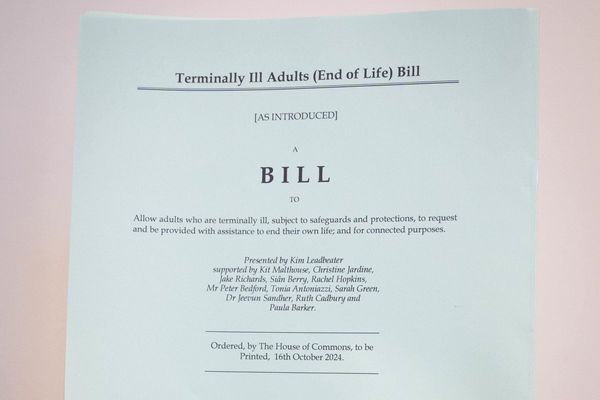
Humza Yousaf has resigned just over a year into his leadership of Scotland’s ruling party, the pro-independence Scottish National Party (SNP). It comes after a chaotic week in which the SNP’s coalition agreement with the country’s Greens collapsed over their inability to come to an agreement over environmental policy.
Who is Yousaf?
Yousaf, 39, has been in Scottish Parliament since he was 26. He worked with former SNP leader Alex Salmond and Nicola Sturgeon (before she was leader) prior to his election. He took his oath in English and then in Urdu, wearing a traditional Pakistani sherwani with a Partick Thistle tartan touch.
Upon the resignation of Sturgeon in March 2023, Yousaf ran for leader, campaigning on maintaining much of Sturgeon’s more socially progressive platform, notably a controversial gender recognition bill that had helped weaken Sturgeon and was opposed by his rivals for the top job. He beat out Kate Forbes and Ash Regan (more on her later) to become Scotland’s youngest-ever first minister and the first Scottish-Asian to hold the office. He says he was unable to use their shared south Asian heritage as a point of connection with British PM Rishi Sunak.
Coalition
Scotland’s mixed electoral system makes it difficult to win a majority, and in the August 2021 election, the SNP was left one seat short of maintaining the majority the party had held since 2007. Enter the Bute House Agreement, a power-sharing arrangement between the SNP and the Scottish Greens. Struck under Sturgeon’s leadership, Yousaf and the Greens reaffirmed their commitment to it when he took the leadership.
The end of the affair
Some of Yousaf’s problems were eerily reminiscent of Sturgeon’s: her husband Peter Murrell was arrested in April 2023 as part of an investigation into the SNP’s finances — he had resigned as the party’s chief executive the previous month. Almost exactly a year later he was arrested again, and has been charged with embezzlement. He’s yet to comment on the charges.
But the last straw was the announcement by the country’s Cabinet Secretary for Wellbeing Economy, Net Zero and Energy Màiri McAllan that the government was abandoning Scotland’s goal of cutting carbon emissions by 75% by 2030. The Greens called an extraordinary meeting on the future of the agreement, but Yousaf preemptively canned the arrangement and kicked the party’s two representatives out of his cabinet.
With blood in the water, Scotland’s Conservative and Labour parties both prepared a vote of no confidence, while Yousaf attempted to sew his majority back together; he was reliant on his old rival Ash Regan, who had since defected to the more socially conservative pro-independence Alba party. As Alba’s sole representative, she could guarantee him a razor-thin margin.
In the end, it became clear his brinkmanship with his coalition partner had not paid off, and he resigned.
“I’ve concluded that repairing our relationship across the political divide can only be done with someone else at the helm,” Yousaf said at a press conference in Edinburgh on Monday. “I have therefore informed the SNP’s national secretary of my intention to stand down as party leader and ask that she commences a leadership contest for my replacement as soon as possible.”
The Scottish Parliament now has 28 days to choose a new first minister before an election is forced, and the SNP is looking for its third leader in 18 months. The SNP’s troubles are, paradoxically, bad news for Rishi Sunak, with Labour looking to make the most of the loss in the chaotic north in the coming election.







